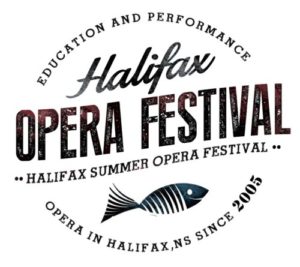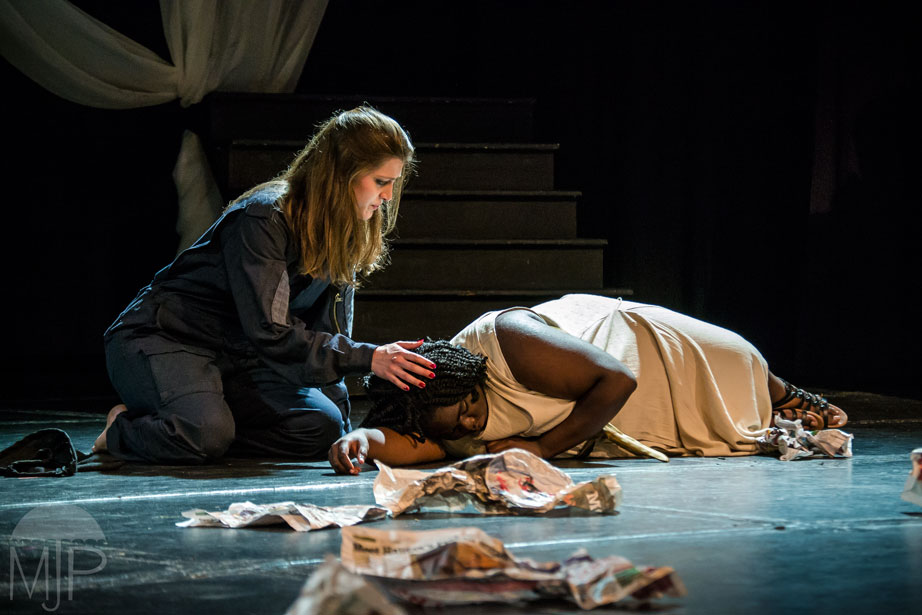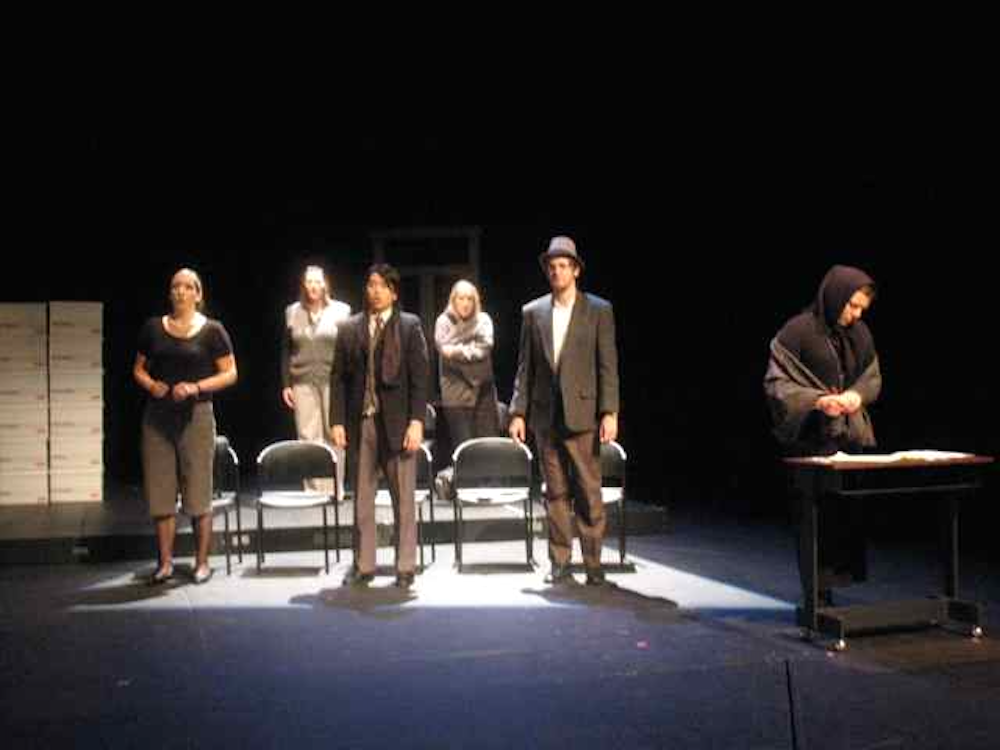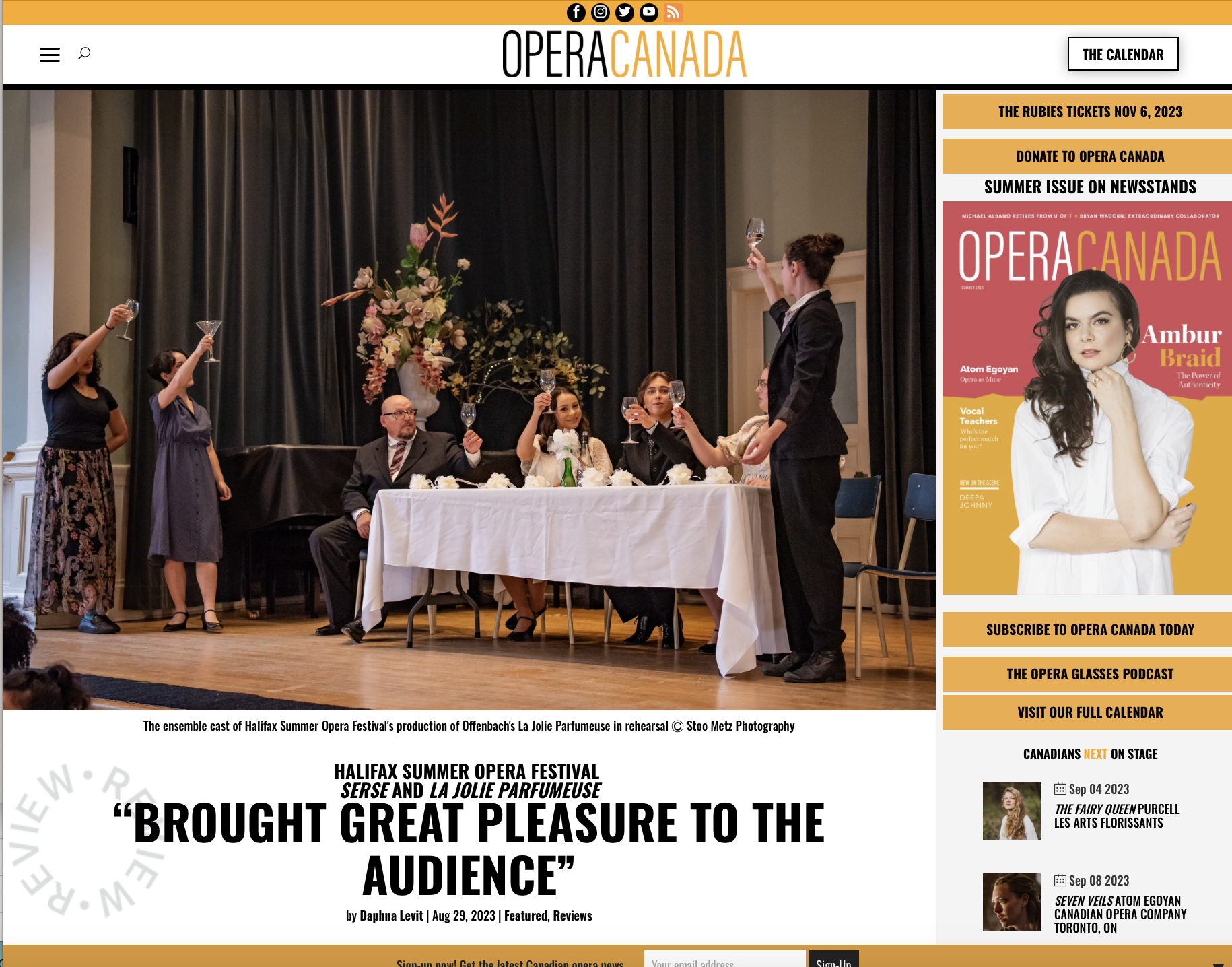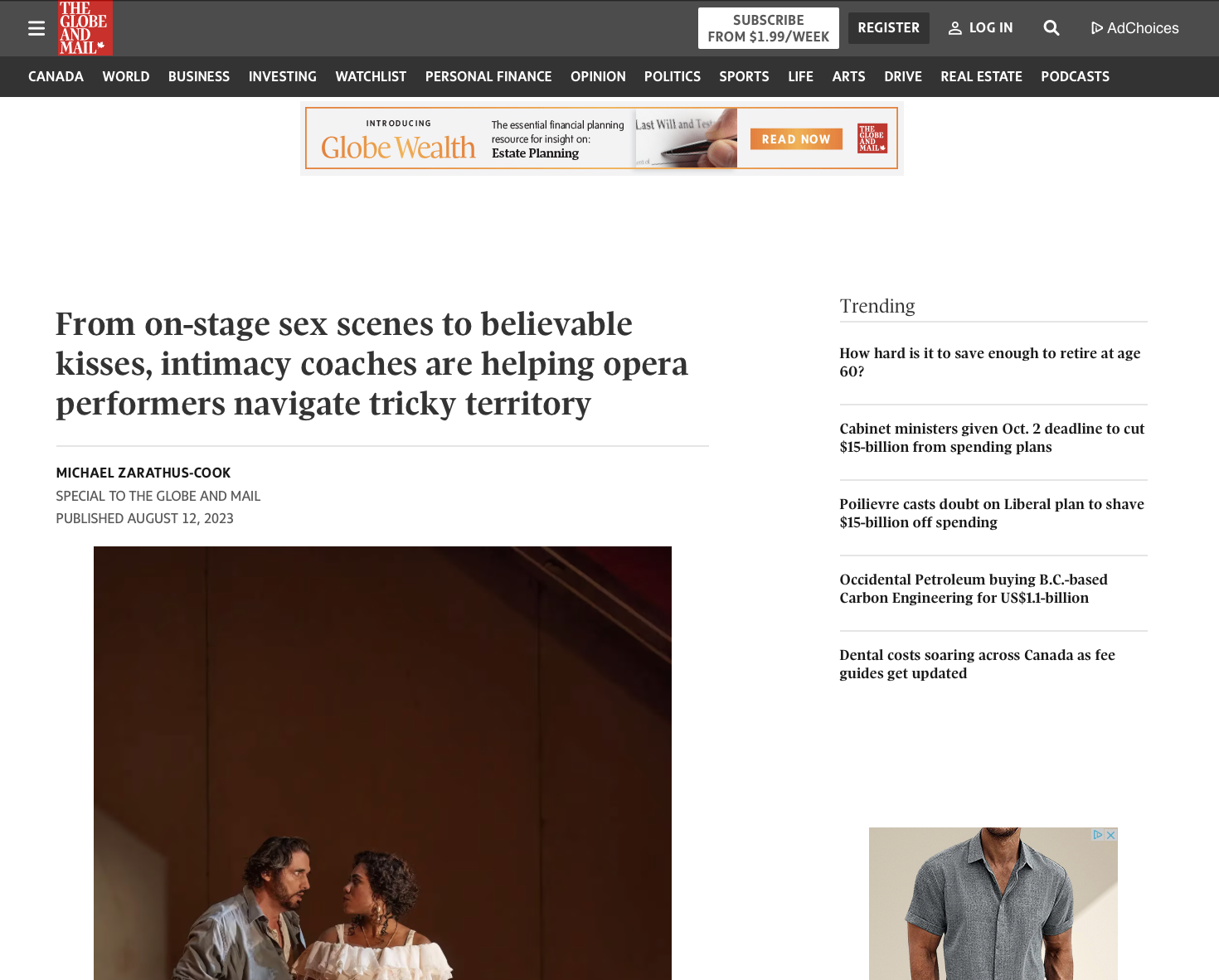Belezza and Fedra in Cavalli’s L’Egisto
[/et_pb_slide] [/et_pb_slider][et_pb_testimonial admin_label=”Testimonial” author=”Morgan Reid” url_new_window=”off” quote_icon=”on” use_background_color=”on” background_color=”rgba(244,171,171,0.83)” background_layout=”light” text_orientation=”left” quote_icon_color=”#e02b20″ body_text_color=”#000000″ border_style=”solid” body_font_size=”20″ body_font=”Lobster||||” _builder_version=”3.0.51″ quote_icon_background_color=”#f5f5f5″]“For me, the process of putting a show together is always a new learning experience, as you will always have new ideas, aspects, and people to work with. I always learn more about myself with every performance I do, big or small.”
[/et_pb_testimonial][et_pb_text admin_label=”Text” background_layout=”light” text_orientation=”left” border_style=”solid” _builder_version=”3.0.51″]Where are you from? How did you first get interested in opera or musical theatre?
I’m originally from Sydney in Cape Breton, Nova Scotia. Cape Breton is, undoubtedly, home to so much variety and richness of music, performance, and artistic culture. As a younger girl, I was a part of music & drama programs and community musical theatre, which then transitioned into larger musical theatre productions and programs, private voice lessons, and developing a love for performance in any way. I knew I wanted to study music at a higher level, but sort of took the risk of jumping into classical training with no background in it. After starting my Bachelor of Music, that doubt faded away completely and I’ve been hooked on classical singing and opera since. My family has been incredibly supportive in all my musical endeavours, regardless of genre. I’m actually very fortunate in that way, as they also love attending and listening to musicals and opera, with or without me. However, it’s still a mystery as to where I inherited my singing ability from!
When did you start studying voice? Where are you studying now?
I took private lessons in my last two years of high school, as singing became a major focus for me. After this, I began my Bachelor of Music at Mount Allison University, where I’m now entering my fourth (and final!) year. I’m currently studying under Dr. Vicki St. Pierre, who has absolutely changed my musical life!
What came first for you, theatre or music?
I suppose a combo of the two. I was in a youth drama program where we did musicals but also acting basics. I also took piano and violin lessons. After I caught the musical theatre bug, I started doing community productions, starting with starring as Annie when I was 9 years old (red wig and all). From then on in, I jumped at any performance opportunity, at any level, I could- music, theatre, dance, you name it! Funnily enough, unlike most beginning performers who took RCM exams in music, I took RCM theatre exams instead- breaking down poetry, performing monologues, public speaking, miming, and improv. Looking back, I credit these acting/theatre exams for my ability to memorize quickly, my foundational acting skills, and it also gave me a start on learning IPA!
What are your dream roles?
One of the first operatic roles that comes to mind is Violetta in Verdi’s La Traviata. Traviata was one of the first operas I really listened to seriously, then watched online… then studied in class… and then saw in person at the Met just this past February (Thanks Mom and Dad- best birthday ever!). It definitely has a special place in my heart because of this. Musically, I just think its very romantic and emotional while still virtuosic, and Violetta is such a powerful and heartbreaking character. I would also love to sing Lucia because who doesn’t love a good mad scene? Opera is still relatively new to me and I know there is so much more out there for me to explore and fall in love with.
For musical theatre, I’m pretty sure I could ramble on about over a dozen, but I’d love to play Dot in Sunday in the Park and Cinderella in Into the Woods (again) because I just adore Sondheim. Lastly, if not cliché, Christine in Phantom. I know, I know, but Phantom was my favourite musical when I was, like, 5 or 6 years old, so knowing that I’ve grown up to be a soprano who could sing Christine makes Little 5 Year Old Morgan incredibly joyful and fulfilled.
What arias, songs or entire roles belonging to other voice types would you like to perform?
I absolutely adore the Songs of Travel by Vaughn Williams. If there was a baritone inside of me, I would sing them all the time. Same with Dichterliebe. Love, love, love.
Who are your favourite performing artists?
As a soprano, I spend a lot of time listening to sopranos and Diana Damrau never fails to blow me away. Anna Netrebko is also up there on the list and I am always captivated by watching videos of Cecilia Bartolli perform. For musical theatre, Jesse Mueller has captured my heart recently, and I love Annaleigh Ashford, Bernadette Peters, Sutton Foster, and Audra MacDonald.
Not forgetting about the guys, Placido Domingo’s voice and Fischer-Dieskau’s text and interpretation are just wonderful examples. For the broadway fellas, I love Jeremey Jordan, Christian Borle, Lin Manuel Miranda (duh!), and Alan Cumming.
What’s the most embarrassing song on your phone/tablet/streaming playlist?
Honestly, I feel like anyone could find something “embarrassing” to them in my music library. I totally love some pop music sometimes- sue me! But more surprising to most people is that I love hiphop and rap. I trained in hiphop, and was on the varsity dance team at my university, as well as teaching and choreographing advanced hip hop classes. So, like I said, there’s quite a mix of music on my playlists… something for everyone!
How should we as interpretive artists deal with works that are racist and/or sexist? What can be done to make opera relevant to the next generation?:
I think this is such a difficult topic, as one could argue that we need to understand works within the lens of when they were written, but frankly, how many subjects were tackled then are problematic today. The option to (which is usually determined out of the hands of a performer if cast in a production) make decisions or changes to a work is always there, but then its the question of how much and to what extent? What can one censor without affecting the work, as some aspects are so inherent to the plot? For instance, how Don Giovanni treats women and Leporello’s Catalogue aria, or aspects of Carmen and Madama Butterfly reflecting the treatment of women, class, and minorities, or even the debate that John Adam’s The Death of Klinghoffer shouldn’t be performed at all. I’m sure many performers, especially younger singers, would have trepidations concerning changing aspects to a long standing work in the canon, despite knowing some of the content is problematic. As a performer, we should be aware of and acknowledge the cultures from which these stories come and what our roles actually mean in that context. We should play our female roles confidently and give them agency. If we’re performing singular arias or numbers from a work, we can pull them out of context and not have to appear as or appropriate another culture. It’s a tricky road, but music alone can be enjoyed, its the other aspects that cause the issues.
As for opera remaining relevant, I think many companies are doing a great job promoting and making opera accessible. Even just student pricing, the Met’s Fridays under 40 or their children’s performances of The Magic Flute, make going to the opera more accessible for different generation, financially, but also just make it more intriguing. Opera has a reputation of being another generation’s music, being elitist or too high strung, but opera realistically has something for everyone. There are also wonderful indie opera companies making new performances fresh and exciting, there are new works being commissioned and premiered, and there’s a new audience ready to enjoy and appreciate these things. I’m a really big fan of the Bicycle Opera Project, as they perform contemporary works, make them accessible, and bring them (by bicycle!) to communities who may not have the chance to hear them otherwise (great works and great people- check them out!). I think the future of opera lies in these companies and projects who want to create, share, and grow the genre in new ways and to new people.
What are you most looking forward to about this summer?
I’m looking forward to meeting and working with new peers and teachers, but working with some familiar faces in a new environment. At any program, there is plenty to learn both on and off stage. For me, the process of putting a show together is always a new learning experience, as you will always have new ideas, aspects, and people to work with. I always learn more about myself with every performance I do, big or small. Especially as a young singer, programs like this allow major potential for growth and discovery, and I can’t wait for this opportunity to learn more about myself and my voice!
Thanks, Morgan!
Are you a participant or staff member this year? Why not submit your own answers to our questionnaire!
[/et_pb_text][/et_pb_column][/et_pb_row][/et_pb_section]